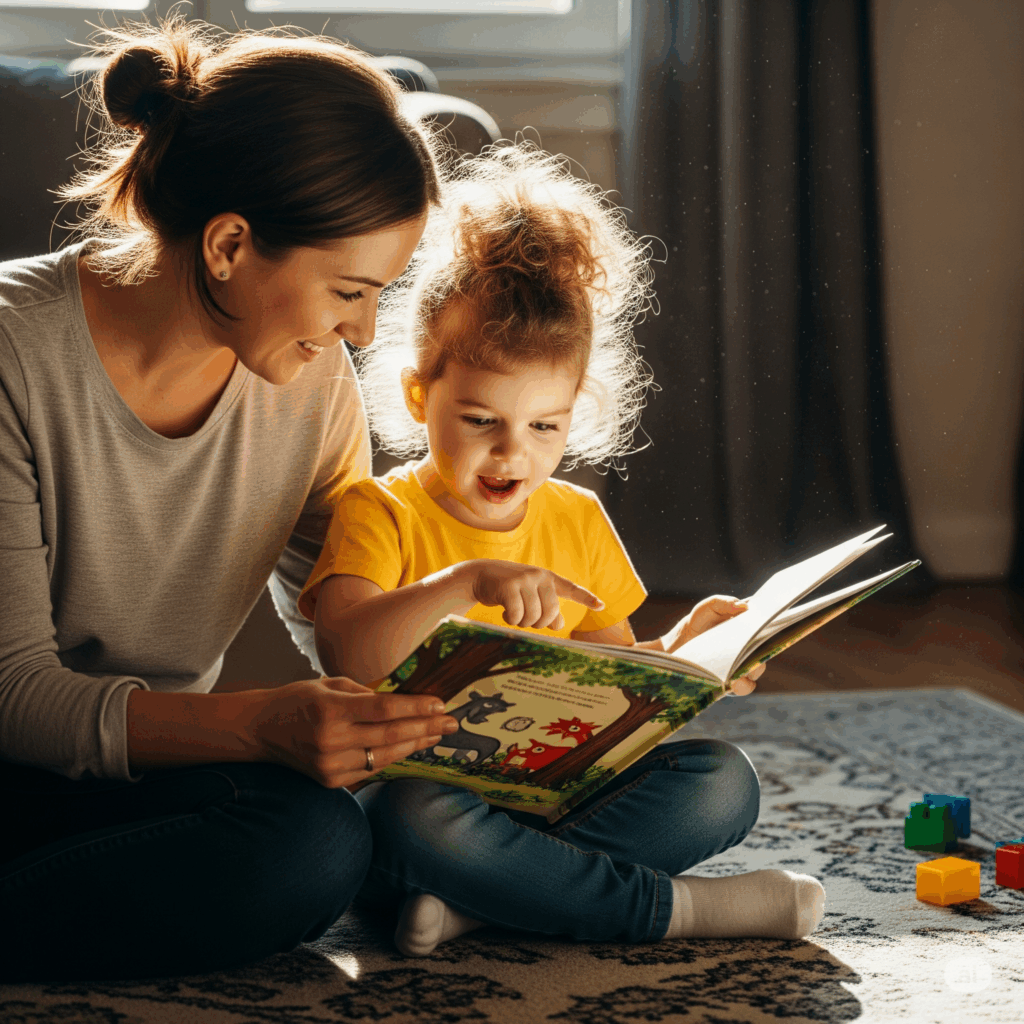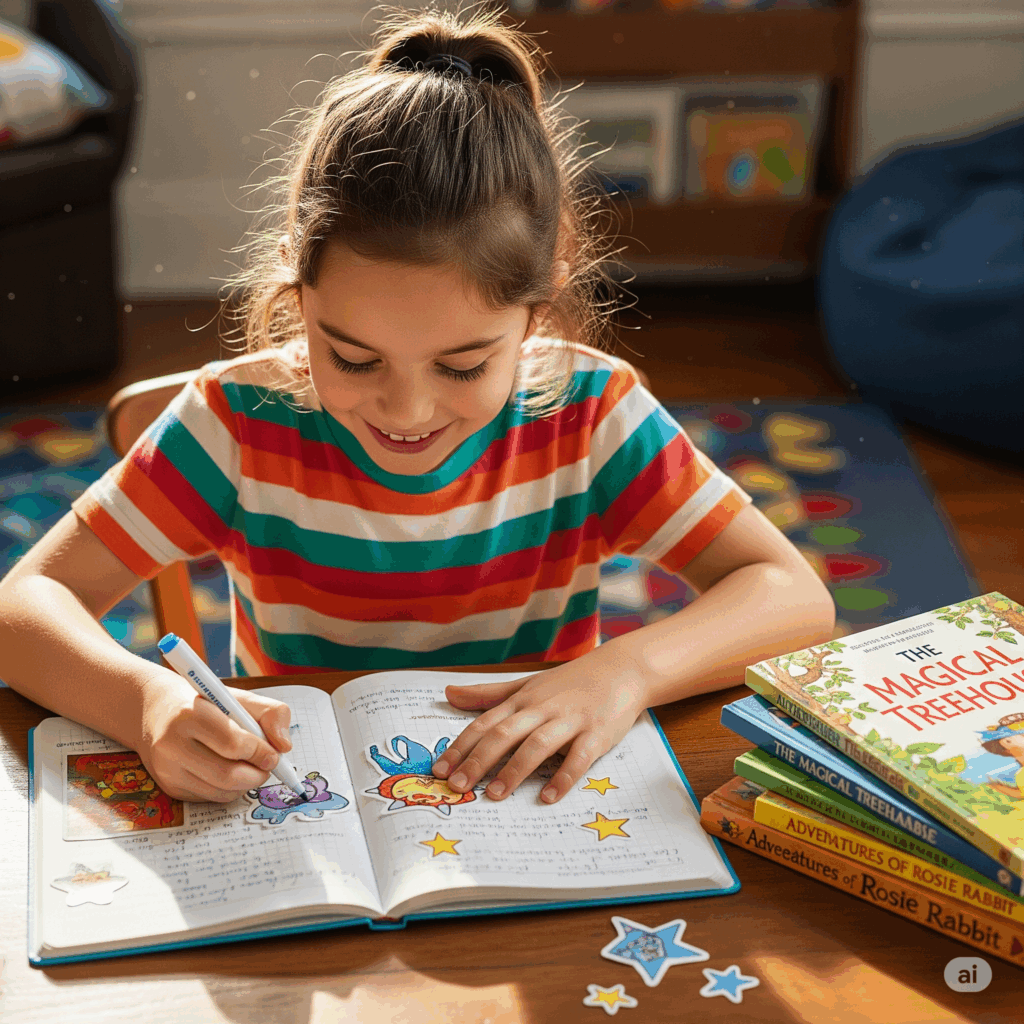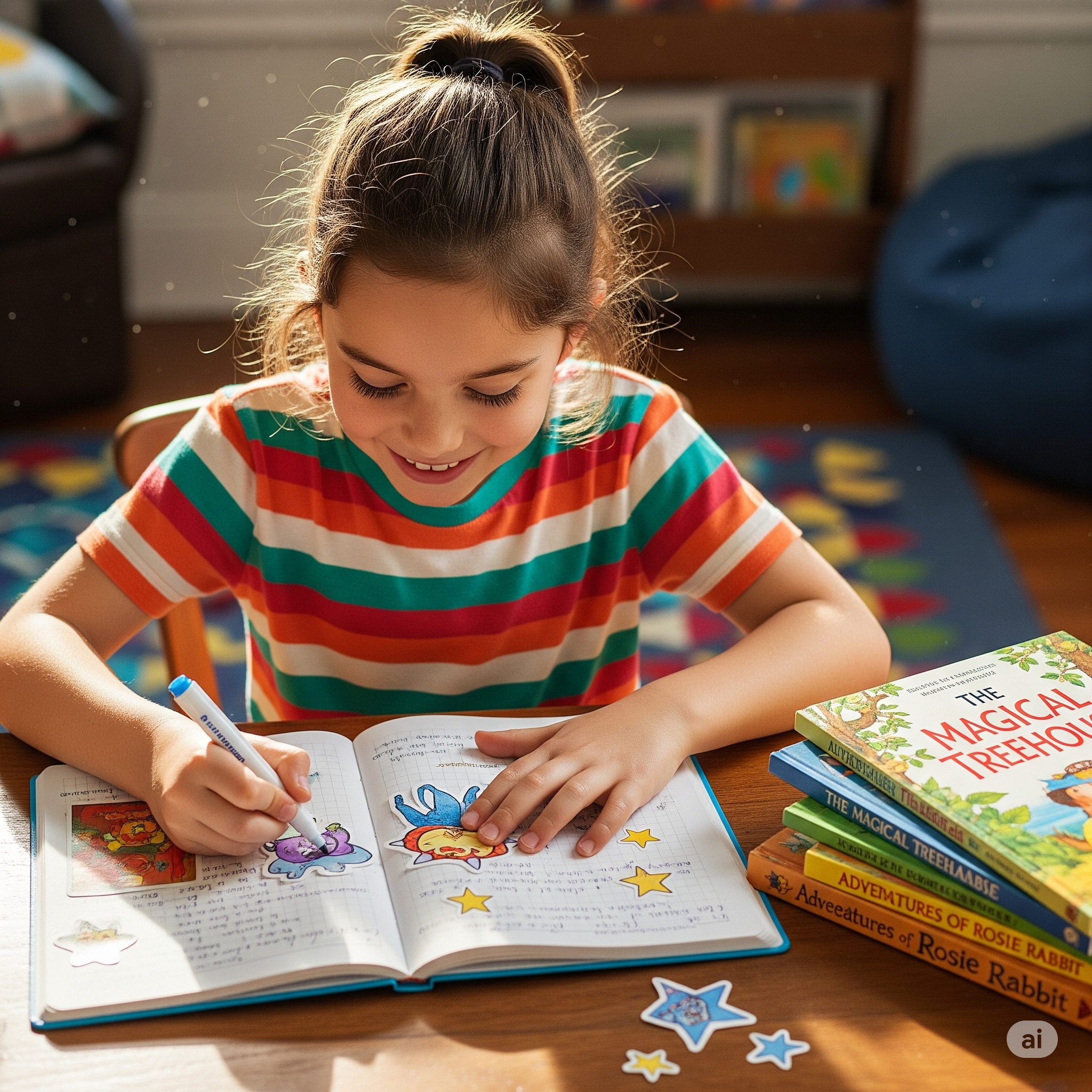Hello, 😊 Today, I’d like to talk about a topic many parents are curious about: ‘how to help our children develop proper reading habits.’ “I wish they’d read more…”, “How can I get them to be friends with books?” I’ve had these very same worries a lot myself. [Reading Education]
Reading is more than just decoding letters; it’s an essential activity for fostering a child’s language development, cognitive abilities, emotional stability, imagination, and creativity. However, the moment you force a child to read, it often turns into a boring chore. In this article, I’ll share practical and effective reading education tips, from A to Z, to help your child enjoy books ‘like play’ and grow into a child who seeks out books on their own! If you read this article to the end, it will be a great help in forming your child’s reading habits. So, shall we begin together? 💡
Why Are Reading Habits Important? (The Power of Reading!)
Cultivating reading habits in children goes beyond simply helping them do well in school; it profoundly impacts their overall development. Let’s first explore the positive effects reading has on children.
- **Language and Vocabulary Development:** Reading various books naturally exposes children to new words and sentence structures, leading to rich expressive abilities.
- **Improved Cognitive Abilities:** Children can develop the ability to grasp cause-and-effect relationships within stories, process information, and solve problems.
- **Emotional Development and Empathy:** Understanding and empathizing with the feelings of various characters helps develop the ability to understand others’ minds.
- **Enhanced Imagination and Creativity:** Visualizing the stories in books allows children to create their own worlds, which in turn fosters creative thinking.
- **Increased Concentration and Learning Ability:** The experience of immersing oneself in a book naturally boosts concentration, positively impacting other areas of learning.
How about that? Reading truly offers many gifts to our children, doesn’t it? ✨
Sparking Your Child’s Interest in Reading, Start Here! (Enjoy It Like Play)
The first step to helping your child become friends with books is to let them feel ‘fun.’ Create an enjoyable experience, like play, rather than forcing them!
- **Believe in the Power of Reading Aloud!:**
* Reading books to your child is the best way to build a bond and instill a positive impression of books. Read to them consistently, even before they know their letters.
* Using different voices for characters and incorporating gestures can increase your child’s engagement.
- **Befriend Books, Like Play!: **
* Let your child naturally interact with books as if they were toys. Place various types of books around your child, such as board books that are okay to tear, tactile books, and sound books.
* After reading a book, it’s also great to do art activities or role-playing related to the book’s content.
- **Give Them the Freedom to Choose:**
* Let your child choose the books they want to read directly at a bookstore or library. Children will be much more interested in books they’ve chosen themselves.
* Sometimes, they might ask you to read the same book repeatedly. Even if it gets tiresome, it’s important to read it as many times as your child wants. Through repetition, they feel secure and can fully internalize the content.
Creating the Right Reading Environment, These Are Must-Dos! (The Magic of a Reading Space)
A child’s reading habits are greatly influenced by their environment. It’s important to create an environment where books are easily accessible and close at hand.
- **Place Books in Easily Accessible Spots:**
* Keep books on low shelves in places easily reachable by your child, such as a corner of the living room or their bedroom.
* Placing a book basket next to a toy basket is also a good way to make books feel like an extension of play.
- **Create a Cozy Reading Nook:**
* Design a small reading corner just for your child. Using soft cushions, blankets, or a small tent can create a comfortable and cozy space where your child can immerse themselves in books.
* For lighting, it’s best to use gentle, indirect lighting that is neither too bright nor too dim, making it comfortable for the eyes.
- **Limit Media, Secure Reading Time:**
* It’s a good idea to keep electronic devices like smartphones, tablets, and TVs away during reading time or in the reading space. Media can be the biggest distraction from reading.
* Designate specific times, such as after meals or before bedtime, as ‘reading time,’ and create an atmosphere where the whole family reads together.

Age-Specific Reading Strategies (Tips for Each Developmental Stage)
It’s important to use appropriate reading strategies tailored to your child’s age and developmental stage.
- **Infancy & Toddlerhood (0-3 years): Sensory Stimulation & Bonding**
* Book Types: Books that stimulate the five senses, such as tactile books, pop-up books, and sound books; picture books with large, vivid illustrations.
* Reading Aloud: Read short, repetitive sentences, make eye contact, and provide plenty of physical affection. It’s okay if they chew or mouth the book!
- **Preschool & Early Childhood (4-7 years): Imagination Boost & Storytelling**
* Book Types: Creative picture books that spark imagination, books rich in onomatopoeia and mimetic words, books that explore various emotions.
* Reading Aloud: Read expressively, putting emotion into the characters, and ask simple questions about the book’s content to encourage your child’s thoughts. (“Why was this character angry?”)
- **Early Elementary School (8-10 years): The Joy of Independent Reading & Exploring Various Genres**
* Book Types: Various genres that pique a child’s interest, such as traditional fairy tales, biographies, science fiction, and mystery stories. Books with gradually increasing text.
* Reading Guidance: Encourage your child to read aloud independently, and if a difficult word appears, look it up together to expand their vocabulary. Keeping a reading journal is also a good idea.
- **Upper Elementary School (11-13 years): Critical Thinking & Expanding Background Knowledge**
* Book Types: Books that broaden background knowledge in subjects like history, science, and social studies; classic literature; books that cover diverse perspectives.
* Reading Guidance: After reading, engage in deep conversations about the content, and encourage them to organize their thoughts or feelings. Participating in debates or reading clubs is also beneficial.
Reading Together with Parents, Greater Impact! (The Best Reading Mentor)
Parents are a child’s best reading mentors and role models. The role of parents is paramount!
- **Parents, Lead by Example First:**
* It’s most effective for parents to demonstrate reading themselves rather than just saying, “Read a book!” Children learn by observing their parents’ actions.
* Try reading together in the living room, or set aside time for each family member to read their favorite book.
- **The Importance of Conversation:**
* After reading a book, discuss its content, asking questions like, “What was the most interesting part?” or “What would you have done if you were the main character?”
* Through books, you can share your child’s thoughts and feelings and broaden their understanding of the world.
- **No Coercion, Yes Encouragement:**
* Don’t force reading or judge your child by the quantity they read. Reading should be an enjoyable experience.
* Lavishly praise and encourage your child for even small efforts in reading. Positive feedback becomes the driving force for your child to continue reading.

Know-How for Sustaining Reading Habits (Consistency is Key!)
Even once a reading habit is formed, consistent effort is needed to maintain it.
- **Create a Reading Routine:**
* Establish and try to stick to regular reading times, such as 15 minutes before bedtime or 10 minutes after breakfast daily. A consistent routine greatly aids habit formation.
* On weekends, make visiting the library or bookstore a regular family outing.
- **Utilize Reading Records or Reward Systems:**
* Activities like recording book titles and brief impressions in a reading journal, or creating a sticker chart for reading, give children a sense of accomplishment.
* Experiential rewards, such as ‘watching a movie together after finishing a book,’ are more effective than material rewards.
- **Provide Diverse Reading Experiences:**
* Beyond physical books, let them experience various forms of reading, such as audiobooks and e-books.
* Offering special experiences related to reading, like attending plays or exhibitions based on books, or meeting authors, is also a great way to boost your child’s interest in reading.
Cultivating proper reading habits in our children requires parents’ patience and consistent effort. However, I am confident that this effort will become a precious, lifelong asset for your child. Reading goes beyond simply accumulating knowledge; it will gift your child the wisdom and courage needed to understand the world, express themselves, and live happily.
Based on the tips shared today, let’s work together to help our children grow into kids who truly love and enjoy books! Don’t rush; if you proceed slowly at your child’s pace, you will surely see good results. I hope parents will become the best reading mentors, ensuring that reading is remembered by their child as a ‘fun game’ and a ‘happy experience’! 😊

If you have any experiences or concerns about building your child’s reading habits, feel free to share them in the comments! Let’s talk about it together 😊
Hashtags: #ChildReading #ReadingHabits #ParentingTips #EarlyChildhoodEducation #BookParenting #ImportanceOfReading #ElementaryReading #ParentEducation #KidsAndBooks #ReadingEducation


